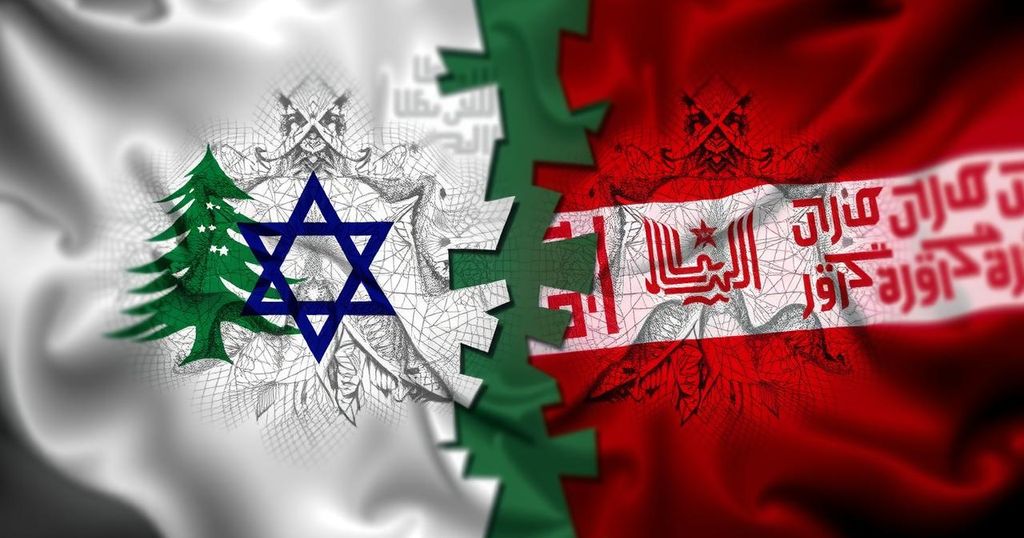Israel’s Foreign Minister proposed that Lebanon could normalize relations with Israel if Saudi Arabia first does so. This speculation arises amidst stalled negotiations fueled by the ongoing Gaza conflict, raising questions about Palestinian statehood and the role of international peacekeeping forces in Lebanon.
Israel’s Foreign Minister, Israel Katz, posited that Lebanon might consider normalizing relations with Israel, contingent on Saudi Arabia establishing ties with the Jewish state first. Katz expressed this perspective during a discussion with Italian Foreign Minister Antonio Tiani, underscoring that Lebanon could potentially join the normalization efforts if an agreement with Saudi Arabia is realized. However, the feasibility of such an outcome remains uncertain as Lebanon has historically not recognized Israel and is still in a state of conflict with it. Washington has been facilitating negotiations between Tel Aviv and Riyadh, which, if successful, would enable a US-backed security pact with Saudi Arabia in exchange for its normalization with Israel. Yet, these discussions have been stalled since the outbreak of hostilities in Gaza. Saudi Arabia has maintained that any normalization with Israel remains dependent on progress towards Palestinian statehood, a prerequisite not currently supported by Israel’s far-right government. In this context, Minister Tiani remarked that “Italy will not recognise the Palestinian state without an agreement with Israel,” elaborating that current recognition lacks significance due to Hamas’s designation as a terrorist organization, which complicates communication regarding the issue. Notably, other nations including Spain, Ireland, Norway, and Slovenia recognized Palestine earlier this year, indicating a divergence in international perspectives on the matter. Additionally, Katz articulated Israel’s desire for the UN peacekeeping force in southern Lebanon to be integrated into any future agreements, advocating for enhanced efficacy in countering the Iranian-backed Hezbollah. Ongoing confrontations between Hezbollah and Israeli forces have escalated, resulting in substantial casualties, including civilians, amid bombings that have targeted regions within Lebanon. Notably, Israeli strikes have also affected UNIFIL peacekeepers and installations, actions that have drawn condemnation from Italy and France. Katz conveyed, via social media platform X, that discussions with Tiani encompassed necessary reforms to UNIFIL’s mandate to bolster its effectiveness against Hezbollah, signaling a prospective adjustment to UN Resolution 1701 that could empower UNIFIL within its operational scope—an amendment perceived by the Lebanese government as a threat to its national sovereignty.
The backdrop of Israel’s foreign relations, particularly regarding its interactions with Lebanon and Saudi Arabia, is characterized by historical animosities and ongoing conflict. Lebanon does not officially recognize Israel and is technically in a state of war with it. The potential for normalization between Israel and Lebanon hinges significantly on Saudi Arabia’s stance towards Israel, influenced by regional dynamics and the ongoing Israeli-Palestinian conflict. Recent severe escalations in hostilities have further complicated the situation, leading to international calls for mediation and reform in peacekeeping efforts, especially in light of the role of Hezbollah in southern Lebanon.
In conclusion, if Saudi Arabia moves towards normalization with Israel, it may pave the way for a similar shift in Lebanon’s position. However, significant hurdles remain, primarily involving the Palestinian statehood debate, ongoing conflicts, and the need for effective peacekeeping measures. The complexities of regional politics, compounded by violent escalations, necessitate careful consideration and diplomacy to foster any prospects for peace and recognition among these nations.
Original Source: www.newarab.com







